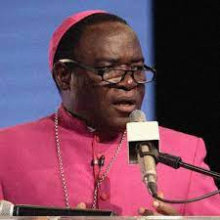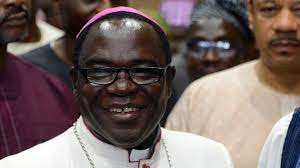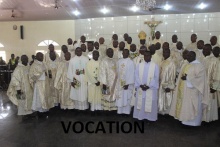By Matthews Otalike
Africans are faced with a moment of unprecedented challenge where the very fabric of creation is threatened by the heedless actions of humanity and the quest to profit from creation.
This terse statement of lamentation was part of the decision of Faith leaders representing the diverse and united voices of African multi-faith leaders, who came together at the Africa Climate Summit and Week in Nairobi with a shared conviction and a solemn responsibility. As guardians of spiritual wisdom and moral guidance, the representatives of the different faiths said “the values of stewardship, empathy, justice, equity and solidarity as enshrined in our faith traditions must guide every decision and action that is taken”.
Furthermore, they “urge our governments and all those represented in the Africa Climate Summit and Week to be guided by the wisdom of our faith traditions and the undeniable urgency of the moment” adding that “the faith constituency is deeply concerned by actions that fall short of the required ambition in tackling the climate emergency which threatens life on earth. We must leverage this momentum to deliver concrete actions that will help the continent address the challenges of the climate crisis. It is now more than ever before that our governments must prioritize policies that honour our planet and its biodiversity, that promote sustainable land practices, that mitigate the effects of climate change on the most vulnerable among us, and that deliver adequate and predictable climate finance to where it is most needed.”
The Faith Leaders in attendance at the Summit include the Catholic Bishop of Sokoto Diocese, Nigeria, Most Reverend Dr. Matthew Hassan Kukah, Rev. Dennis Nthenge of the Green Anglicans and Sheikh Ibrahim Lethome. Other participants include Meryne Warah and Fred Njehu.
The Faith leaders reaffirmed their belief in Pope Francis Encyclical Laudato Si which they said “offered the world a moral compass with which to urgently address the looming dangers that threaten our environment. He warned that: We are the first generation to feel the impact of climate change and the last generation that can do something about it. As faith leaders in Africa, we believe that each one of us can respond to this challenge. We therefore call on religious leaders to build bridges of friendship and reverse the new surge of religious extremisms which are destroying the foundations of our faiths and destroying our people.”
The Africa Climate Summit and the African Climate Week they said, “is a timely moment for leaders to move beyond rhetoric, demonstrate our collective resolve and unwavering
solidarity to safeguard the earth for current and future generations. We amplify the
following as matters central to the African region that must be considered”.
Nigeria’s Bishop Matthew Hassan Kukah led the reading of the Faith Statement by the Faith Leaders.
s
On climate finance, the Faith Leaders in Africa “all actors, including societal leaders, and citizens of the world to put pressure on states and financial institutions, particularly those that determine the rules of engagement within the global financial architecture, to urgently re-purpose the architecture. This architecture must be equitable to all, foster low carbon climate resilient growth; release fair and affordable forms of finance and support green and inclusive growth; and Global North leaders to move past announcements, to delivery on commitments made.”
They urged the African leaders to “adopt a roadmap of ensuring that climate finance is delivered and it should reach the most vulnerable and marginalized frontline communities that are at the highest risk of the climate crisis.
To mitigate the severest adverse effects of human-induced climate change on Africa in particular, the Faith Leaders called for the “operationalization, including capitalization by rich countries, of the loss and damage fund to offer relief to Global South countries through provision of grant financing for addressing loss and damage.
On climate finance, the Faith Leaders in Africa “all actors, including societal leaders, and citizens of the world to put pressure on states and financial institutions, particularly those that determine the rules of engagement within the global financial architecture, to urgently re-purpose the architecture. This architecture must be equitable to all, foster low carbon climate resilient growth; release fair and affordable forms of finance and support green and inclusive growth; and Global North leaders to move past announcements, to delivery on commitments made.”
Poor African children keeping their hands up - asking for drinking water.
They urged the African leaders to “adopt a roadmap of ensuring that climate finance is delivered and it should reach the most vulnerable and marginalized frontline communities that are at the highest risk of the climate crisis.
Loving African granny together with her granddaughter in a village in Botswana
To mitigate the severest adverse effects of human-induced climate change on Africa in particular, the Faith Leaders called for the “operationalization, including capitalization by rich countries, of the loss and damage fund to offer relief to Global South countries through provision of grant financing for addressing loss and damages.
They further called on African leaders to:
● Adopt a plan of action with robust policy and regulatory measures necessary for African countries to implement and support the growth of inclusive green economies that can provide jobs for the youth.
● Support research and innovation to advance greener economic diversification and growth growth
● Initiate strategies that facilitate development of financial solutions and packages that are accessible and affordable to youth green enterprises including by leveraging climate finance.
The four-page document issued at the end of the summit round up the calls this way: "We urge African leaders to:
● Recognize the structural traps that have undermined Africa’s agricultural potential and compromise capabilities to build adaptive agricultural capacities.
● Prioritize climate change coping strategies featured in various agricultural methods such as agroecology, conservation and adaptive agriculture to strengthen agriculture in Africa
● Promote food security and sovereignty which is the right of the African people to control their own food systems. This includes supporting small-scale farmers, promoting local food systems, and ensuring that



